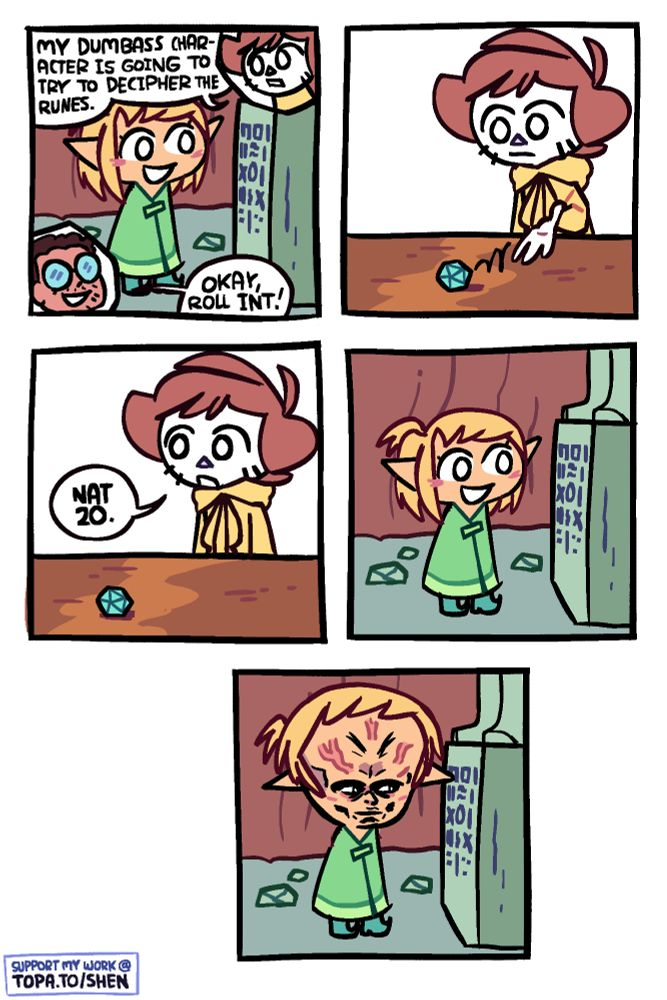this post was submitted on 05 Apr 2025
730 points (98.4% liked)
RPGMemes
12338 readers
409 users here now
Humor, jokes, memes about TTRPGs
founded 2 years ago
MODERATORS
you are viewing a single comment's thread
view the rest of the comments
view the rest of the comments

I take this more as the character just guesses and somehow gets it right. Or at least close enough.
Lindybeige once put dice rolls into a different perspective.
Rather than the dice describing how well the action was performed, his suggesting was that the dice would describe the environment.
In this case, that would describe how complicated the code is. One of his examples were for athletics, where he thought of it as describing how tall a wall is. Your athletics was 14, this wall turned out to be 15, sorry, you just barely didn't make it over.
Though it gets a bit weird if you take into account the player looking at their environment and making decisions, faced with Schrödinger's Wall.
i think the real answer is using whatever makes sense in context: if your character has some experience with the language they could have a brainwave where they see a connection with their existing knowledge, whereas if your character has no way of actually figuring it out they might for example look at the number of characters and blurt out some sounds that fit and that turns out to be correct (or just close enough).
Or just luck. Like with lockpicking, it's possible to bang a keyed lock and pull on it and get lucky with the pins all lining up and it opens. There's vibration devices that work by doing this constantly until it works. The odds are much lower than 5% (without a vibrator), but dnd is supposed to be fun and exaggerated odds can be fun.
I've played a homebrew game that was based on the devil may cry world, where the cut scenes were constantly full of crazy shit, so the GM decided that the crazier the idea you came up with, the more likely it was to succeed, and it was fun. It did really help that he was very good at thinking on his feet and let the game flow more naturally instead of getting stuck in situations where a player succeeding at some random thing they want to do breaks the whole campaign.
For the scenario shown in the OP, a character could get lucky and guess what runes mean. The context could give clues, or maybe one rune looks kinda like something else, is a red herring on its own, but just happens to lead to the correct conclusion in that particular case.
Though it would be fair for the next (unsuccessful) roll to give actual useless red herrings. It's probably better for the GM to do the rolls for the player so they don't know if it's a nat 20. I like this for any kind of information gathering rolls, like spot checks, because it allows players to second guess roll results without it being meta gaming. Also pre-rolling some of those can help, because "roll a spot check" tells the players that there's something to spot, even if they all fail. And not asking can imply there's nothing there.